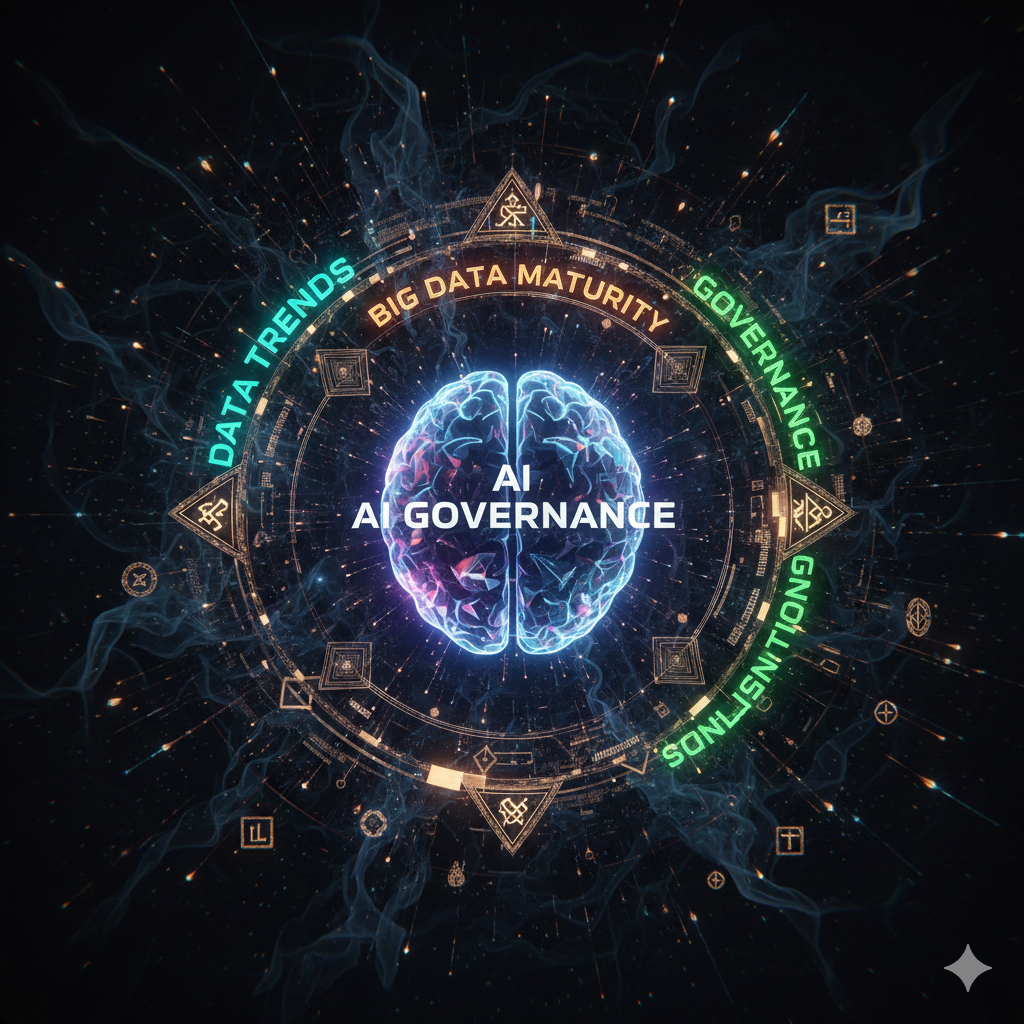Introduction
Artificial Intelligence (AI) has emerged as one of the most transformative technologies of the 21st century. From autonomous vehicles and predictive algorithms to personalized recommendations and medical diagnostics, AI is revolutionizing the way humans live, work, and interact with the world. However, alongside these advances lie significant ethical challenges that must be addressed to ensure AI’s responsible and fair integration into society.
This essay explores the ethical dimensions of AI development and deployment, focusing on issues such as bias, privacy, accountability, transparency, autonomy, employment, and the broader societal implications. These challenges demand robust discussions and frameworks involving technologists, policymakers, ethicists, and the public.
1. Bias and Discrimination in AI Systems
One of the most pressing ethical concerns in AI is the problem of algorithmic bias. AI systems learn from data, and if the data fed into them reflects historical inequalities, societal prejudices, or skewed representations, the AI can reproduce and even amplify these biases.
Key Examples:
- Facial recognition systems have shown higher error rates for people of color due to underrepresentation in training datasets.
- Hiring algorithms have sometimes favored male candidates over female ones due to patterns in historical hiring data.
Ethical Issues:
- Unfair treatment of individuals or groups based on race, gender, age, or other attributes.
- Lack of recourse or explanation for those affected by biased decisions.
- Institutional reinforcement of inequality, especially in domains like criminal justice, healthcare, and finance.
Addressing these issues requires better dataset curation, diverse developer teams, and continuous auditing of algorithms.
2. Privacy and Surveillance
AI-driven technologies are increasingly used to gather, analyze, and infer information about individuals, often without their explicit consent. With the rise of big data, AI can track behaviors, preferences, and even predict future actions.
Key Concerns:
- Invasive data collection by tech companies, often via apps, social media, and IoT devices.
- Mass surveillance by governments using AI for facial recognition, emotion detection, and pattern analysis.
- Lack of informed consent and awareness among users about how their data is being used.
Ethical Challenges:
- Balancing national security or business interests with individual rights to privacy.
- Ensuring transparency in data usage policies.
- Promoting data minimization and anonymization practices.
Governments and companies must establish clear privacy laws and ethical data governance frameworks.
3. Accountability and Responsibility
AI systems often operate in complex environments and can make or influence decisions with serious consequences. However, assigning responsibility for these decisions is difficult.
Ethical Questions:
- If an autonomous car causes an accident, who is responsible—the manufacturer, the software developer, or the owner?
- If an AI system makes a faulty medical diagnosis, can a human be held accountable?
Core Issues:
- Moral agency: AI lacks consciousness or intent, making it difficult to hold it morally accountable.
- Legal gaps: Current laws are insufficient to deal with autonomous decision-making.
- Diffused responsibility: Complex AI systems involve multiple stakeholders (developers, deployers, regulators), making accountability murky.
Solutions include establishing regulatory standards, ensuring human-in-the-loop systems, and clear documentation of AI development processes.
4. Transparency and Explainability
AI systems, particularly deep learning models, often function as “black boxes,” meaning their decision-making processes are not easily understandable even to their creators. This lack of transparency undermines trust and accountability.
Ethical Implications:
- Users and stakeholders may not understand how or why decisions are made.
- Potential for hidden biases or errors to go undetected.
- Challenges for regulatory oversight and public scrutiny.
Importance of Explainable AI (XAI):
- Enhances user trust and acceptance.
- Facilitates ethical auditing and compliance.
- Enables error diagnosis and correction.
Developers must prioritize explainability, especially in high-stakes domains like healthcare, law, and finance.
5. Autonomy and Human Control
AI systems increasingly make autonomous decisions, raising questions about the limits of machine independence and the preservation of human control.
Key Ethical Tensions:
- In military applications, autonomous drones can identify and strike targets without human input.
- In healthcare, AI may recommend treatments or interventions that override human judgment.
Concerns:
- Loss of human agency and control.
- Overreliance on machines, potentially eroding human skills and judgment.
- The risk of automation bias, where humans defer excessively to AI recommendations.
An ethical approach to autonomy involves clear boundaries, ensuring human oversight, and fostering collaborative decision-making between humans and AI.
6. Employment and Economic Displacement
The rapid automation of tasks by AI poses significant threats to employment, particularly in low-skill and routine jobs. While AI can boost productivity and create new opportunities, the transition is often uneven.
Ethical Concerns:
- Job loss and economic insecurity for workers replaced by AI.
- Widening inequality between tech-savvy elites and others.
- Lack of retraining or reskilling programs for displaced workers.
Educational and Policy Interventions:
- Investing in human capital to adapt to the evolving job market.
- Implementing universal basic income (UBI) or social safety nets.
- Promoting inclusive innovation that benefits all segments of society.
The goal should be to harness AI for human augmentation rather than pure substitution.
7. Ethical Use in Warfare
The militarization of AI introduces complex moral dilemmas. Autonomous weapons systems (AWS), or “killer robots,” can identify and engage targets without human intervention.
Ethical Questions:
- Should machines be given the power to decide matters of life and death?
- Who is liable for a wrongful kill in the battlefield?
- Can AI warfare lower the threshold for entering conflicts?
International Debate:
- Many ethicists and organizations advocate for a ban on fully autonomous weapons.
- Others argue AI can make warfare more precise and reduce collateral damage.
The UN and other global bodies are actively discussing regulations, but a global consensus is still lacking.
8. Misinformation and Manipulation
AI can generate highly realistic images, audio, and videos—popularly known as deepfakes—that can be used to spread misinformation, manipulate public opinion, or defame individuals.
Major Risks:
- Undermining democratic institutions through fake political content.
- Blackmail or defamation using fabricated media.
- Erosion of public trust in digital content and media authenticity.
AI tools can also be used for micro-targeted propaganda, such as manipulating voters based on behavioral profiling.
Ethical AI development must include tools to detect deepfakes, regulations to punish misuse, and public awareness campaigns.
9. Inequity in AI Access and Benefits
There is a growing concern that the benefits of AI are disproportionately distributed, favoring wealthy countries, corporations, and elites.
Global Ethical Concerns:
- Developing nations may become technological colonies, relying on foreign AI technologies.
- Lack of infrastructure and education in underdeveloped regions restricts their participation in the AI economy.
- AI tools may reinforce existing global disparities in healthcare, education, and governance.
Ethical imperatives include:
- Promoting open-source AI for public benefit.
- Encouraging international cooperation and equitable access to AI resources.
- Supporting capacity-building in less developed regions.
10. Environmental Impact
Training large AI models consumes significant amounts of energy and computational resources, raising ethical concerns about their environmental sustainability.
Key Facts:
- Models like GPT-3 require massive datasets and computing power, contributing to high carbon emissions.
- Data centers supporting AI can strain local power grids and water resources.
Ethical Questions:
- Is the performance gain worth the environmental cost?
- How can AI be developed in a sustainable and eco-friendly way?
Solutions include using efficient algorithms, renewable energy, and promoting green AI research.
11. Value Alignment and Ethical Programming
Ensuring that AI systems align with human values is a complex task, as moral values vary across cultures, societies, and individuals.
Key Challenges:
- What moral framework should be embedded in AI?
- How can we program AI to make ethically sound decisions in dilemmas?
For example, in a trolley problem-like scenario involving autonomous cars, should the car prioritize passenger safety or pedestrian welfare?
To address this, researchers are exploring value-sensitive design, participatory ethics, and moral reasoning algorithms.
12. Regulatory and Governance Challenges
The lack of comprehensive laws and international norms around AI development and usage poses a serious ethical risk.
Core Issues:
- Slow pace of legislation compared to AI advancements.
- Varying standards across countries, leading to regulatory arbitrage.
- Challenges in cross-border data governance and accountability.
Ethical governance requires:
- International cooperation through treaties and agreements.
- Establishing AI ethics boards and ombudsman roles.
- Encouraging self-regulation by tech companies with public oversight.
Conclusion
AI holds incredible promise for improving lives and solving complex challenges. However, it also presents profound ethical dilemmas that must not be ignored. From privacy and fairness to accountability and global equity, these challenges require proactive strategies, inclusive dialogue, and multidisciplinary collaboration.
The development of ethical AI is not a technical task alone—it is a societal responsibility. Governments, academia, industry, and civil society must come together to create a framework where AI is transparent, fair, inclusive, and aligned with human values. Only then can we ensure that the future of AI is one that benefits humanity as a whole.
Summary Points
Sustainable and value-aligned AI is essential for long-term ethical impact.
AI systems may inherit and amplify societal biases.
Privacy is at risk due to mass data collection and surveillance.
Lack of accountability and transparency in AI decision-making is a major issue.
Employment disruptions must be addressed through reskilling and policy reforms.
Autonomous weapons and deepfakes present new ethical threats.
Ensuring equitable access to AI technologies is vital for global justice.





It’s becoming clear that with all the brain and consciousness theories out there, the proof will be in the pudding. By this I mean, can any particular theory be used to create a human adult level conscious machine. My bet is on the late Gerald Edelman’s Extended Theory of Neuronal Group Selection. The lead group in robotics based on this theory is the Neurorobotics Lab at UC at Irvine. Dr. Edelman distinguished between primary consciousness, which came first in evolution, and that humans share with other conscious animals, and higher order consciousness, which came to only humans with the acquisition of language. A machine with only primary consciousness will probably have to come first.
What I find special about the TNGS is the Darwin series of automata created at the Neurosciences Institute by Dr. Edelman and his colleagues in the 1990’s and 2000’s. These machines perform in the real world, not in a restricted simulated world, and display convincing physical behavior indicative of higher psychological functions necessary for consciousness, such as perceptual categorization, memory, and learning. They are based on realistic models of the parts of the biological brain that the theory claims subserve these functions. The extended TNGS allows for the emergence of consciousness based only on further evolutionary development of the brain areas responsible for these functions, in a parsimonious way. No other research I’ve encountered is anywhere near as convincing.
I post because on almost every video and article about the brain and consciousness that I encounter, the attitude seems to be that we still know next to nothing about how the brain and consciousness work; that there’s lots of data but no unifying theory. I believe the extended TNGS is that theory. My motivation is to keep that theory in front of the public. And obviously, I consider it the route to a truly conscious machine, primary and higher-order.
My advice to people who want to create a conscious machine is to seriously ground themselves in the extended TNGS and the Darwin automata first, and proceed from there, by applying to Jeff Krichmar’s lab at UC Irvine, possibly. Dr. Edelman’s roadmap to a conscious machine is at and here is a video of Jeff Krichmar talking about some of the Darwin automata,